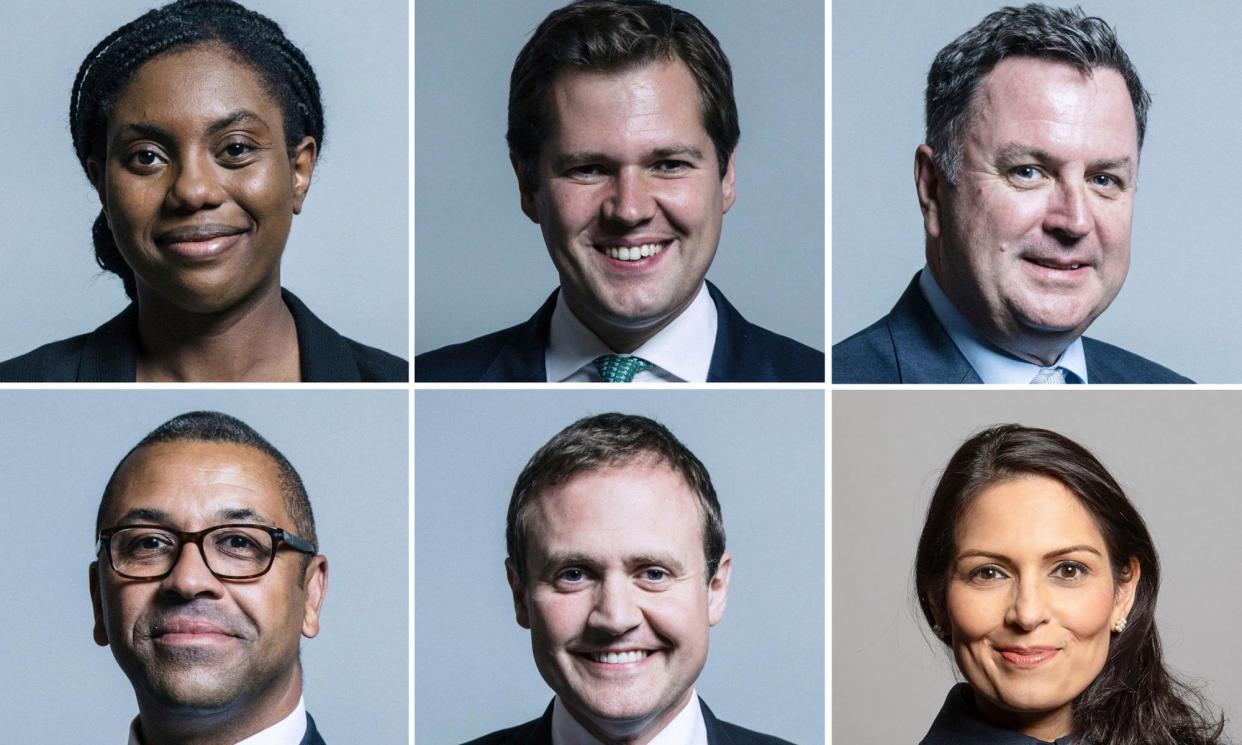Which Conservative leadership hopeful is best hope for UK’s climate goals?

Out of power, and with no one paying them much attention at the moment, the Conservative leadership contest may seem fairly irrelevant to UK climate policy.
But the winner could make a significant difference.
In opposition, there are two approaches the Conservatives can take on environmental issues. One route is to champion their own green legacy; ending coal power, massively expanding offshore wind and passing legislation including the Environment Act and net zero. They could push for faster decarbonisation and hold ministers to account on nature policies.
Sam Hall, who leads the Conservative Environment Network and used to advise Michael Gove, thinks this is the right way forward: “The polling suggests that for those switching from Tory to Lib Dem and Labour there was high support for net zero. Not downplaying our achievements on the environment could have retained some of those votes. I also don’t think it was the right strategy to downplay our environmental achievements to win back Reform voters as their main concern was immigration, not net zero.”
The other route – favoured by Rishi Sunak during the general election – is to label environmental issues as expensive and “woke”, and to attack Labour’s green measures and new onshore renewables.
So which direction have the candidates chosen?
The former immigration minister Robert Jenrick has made the most emphatic move away from the Tory net zero legislation signed into law by Theresa May. He recently told Politico that the UK did not need to be a climate leader, saying: “The UK is only 1% of the world’s emissions. There’s no prizes for being the first country in the world to decarbonise. We should be working towards net zero 2050, but we shouldn’t be decarbonising faster than our major competitors in the world.”
(When flights and imported fossil fuels are taken into account, UK emissions are actually much higher; and if measured by capita, Britain is ranked 13th among individual G20 nations for greenhouse gas emissions, and 11th for just CO2 emissions.)
The former net zero tsar and ex-Tory MP Chris Skidmore seems to think Jenrick was the worst of the bunch, telling the Guardian: “If the Conservatives are serious about remaining in opposition for as long as possible this is exactly the sort of positioning that will keep them out of power for another decade. Having already abandoned mainstream politics and lost seats across the country to Labour and the Lib Dems, Robert Jenrick seems determined to be the Tory party’s undertaker and gravedigger combined, burying them even further beneath the scorched earth.”
The shadow secretary for housing, communities and local government, Kemi Badenoch, has not made her position clear yet, but when she stood for leader in 2022 she tried to mark herself out from the other contenders by pledging to row back on net zero commitments and branding climate targets “arbitrary”.
As the MP for rural North West Essex she has consistently campaigned against pylons in her area that are being constructed to bring renewable energy from offshore wind turbines on the east coast to urban areas inland.
Also leading the charge against green infrastructure is her East of England neighbour Priti Patel, the former home secretary. She has accused Labour of “bulldozing” the countryside for its green plans and demanded ministers “pull the plug on these awful pylons”.
But Patel has lobbied for more support for the farming sector. Labour has refused to commit to a budget for the nature-friendly farming fund, which replaces EU subsidies for land managers. The budget is crucial if the UK is to meet its biodiversity goals and Patel is perhaps among the contenders most likely to hold the party to account on this. She was recently seen in discussion with the president of the National Farmers’ Union, Tom Bradshaw, at an event where he outlined his concerns over the budget.
The former work and pensions secretary Mel Stride has made the clearest commitment to maintaining the UK’s climate targets and said during the campaign that the UK should lead on the world stage.
The shadow security minister, Tom Tugendhat, has said that environmentalism is a core tenet of Conservatism and that it is a principle that needs to be rediscovered in the party. He has also said tackling climate breakdown is a key global security concern: “Drought ruins crops, destroying livelihoods and pushing people into the arms of people smugglers and criminals. Better climate security improves regional stability, which helps strengthen our security in the UK.”
James Cleverly, the shadow home secretary, has indicated he will stick to targets but will emphasise a different way of meeting them to Labour. Rather than state-supported renewables such as via the publicly run GB Energy, he said he would try to unlock private investment. Hall agreed with this, saying: “There is a role for Conservatives to argue that a more market- and competition-based approach to environmental solutions can have less burden on taxpayers and deliver targets more effectively.”
On the world stage, Cleverly has supported UK investment in the international Green Climate Fund, and unlike Sunak would probably be enthusiastic about attending international summits such as Cop.
“Some candidates are going back to what Conservatives should stand for, a clear idea of what a Conservative is,” said Hall. “Support for the environment and our natural heritage is a core Conservative instinct. That should be one of those principles the party tries to unite behind.”


